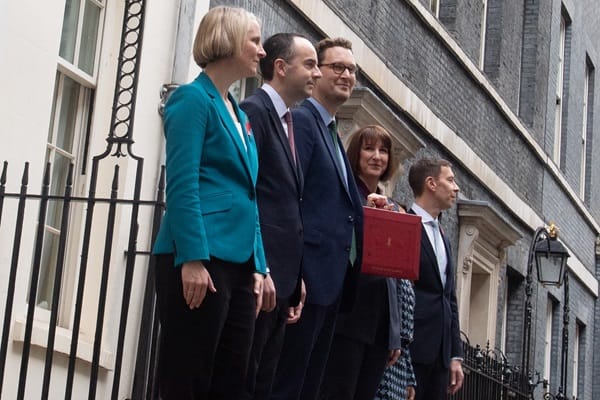Bussiness
The significant events in the global economy over the past week – London Business News | Londonlovesbusiness.com

Last week, U.S. stocks experienced a decline amid an active period for economic and earnings updates.
The technology-heavy Nasdaq Composite and S&P MidCap 400 reached record highs midweek but saw significant drops by Thursday.
This movement reflected cautious investor reactions to major tech earnings, particularly from Meta Platforms and Microsoft, and overall market dynamics that favored value over growth stocks. Notably, small-cap stocks were more resilient compared to their larger counterparts.
The earnings season was in full swing, with approximately 42% of the S&P 500 companies reporting third-quarter results.
This group included tech giants such as Meta, Microsoft, Alphabet, Apple, and Amazon. Analysts, based on FactSet data, projected a 5.1% year-over-year increase in S&P 500 earnings, exceeding the 4.3% growth forecast before earnings season commenced.
Employment data released during the week drew significant attention, revealing inconsistencies. Job openings in September fell to 7.44 million, their lowest level since early 2021, yet the voluntary quitting rate remained steady.
October’s job numbers were disrupted by natural events and a strike at Boeing, causing a discrepancy between ADP’s report of 233,000 new private-sector jobs and the Labor Department’s report of only 12,000 new nonfarm jobs. Despite the modest payroll increase, average hourly wages rose by 0.4%.
Manufacturing activity continued its downtrend, with the Institute for Supply Management reporting its seventh consecutive monthly decline, reaching a 15-month low of 46.5. The U.S. Treasury market reacted with the yield on the 10-year note hitting 4.37%, driven by expectations of renewed inflation and growth pressures. The investment-grade corporate bond market experienced fluctuations, finishing the week with spreads slightly wider amid strong issuance demand.
The STOXX Europe 600 Index ended 1.52% lower last week, influenced by concerns about escalating conflicts in the Middle East and a mix of corporate results. The ECB’s cautious stance on potential rate adjustments also played a role. Leading indexes such as France’s CAC 40, Germany’s DAX, and Italy’s FTSE MIB registered declines of 1.18%, 1.07%, and 1.42%, respectively, while the UK’s FTSE 100 saw a smaller loss of 0.29%.
Notably, the eurozone economy grew 0.4% in the third quarter, doubling the growth rate of the previous quarter and surpassing expectations. Germany’s GDP increase of 0.2% helped it sidestep a recession, while Italy’s economy stagnated. Headline inflation rose to 2% in October from September’s 1.7%, attributed partly to energy price comparisons, while core inflation remained at 2.7%.
In the UK, the first budget under the Labour government led by Chancellor Rachel Reeves outlined GBP 70 billion in new spending over five years, financed through increased taxes and borrowing. The announcement caused a bond market sell-off, prompting Reeves to emphasize the government’s commitment to economic stability. This budget led Tomasz Wieladek, T. Rowe Price’s Chief European Economist, to forecast four more rate cuts by the Bank of England, signaling potential challenges in controlling inflation.
Japan’s stock markets posted gains, with the Nikkei 225 and TOPIX indexes rising 0.4% and 1.0%, respectively. This came after the BoJ maintained its policy rate amid political uncertainties following the ruling LDP’s failure to secure a majority in the lower house election. This political shift impacted currency markets, as the yen weakened before stabilizing at around JPY 152 against the USD. BoJ Governor Kazuo Ueda’s less dovish tone hinted at potential future rate hikes, contingent on favorable economic conditions.
In China, stocks declined despite data showing positive economic trends. The Shanghai Composite and CSI 300 indices fell 0.84% and 1.68%, respectively, while Hong Kong’s Hang Seng Index dipped 0.41%. The official PMI for manufacturing rose above the growth threshold for the first time since April, driven by stronger demand, while the nonmanufacturing PMI modestly improved. The property market showed resilience, with a 7.1% year-on-year increase in new home sales following September’s sharp decline.
Early signs of recovery emerged after Beijing’s economic stimulus measures, positioning the Chinese economy for a more stable outlook heading into 2025. Portfolio Specialist Robert Secker noted improved confidence in China’s future performance, emphasizing that stock valuations will increasingly be determined by company fundamentals and earnings growth.
Overall, the past week highlighted a mix of cautious investor sentiment and economic resilience across major global markets. As earnings, fiscal policies, and geopolitical factors continue to evolve, market participants remain vigilant, balancing growth opportunities with potential risks ahead.










